Filter by

Roma Voices in History
This ground-breaking book is an impressively extensive collection of primary historical sources in various languages that reflect the history of the Roma (formerly referred to as ‘Gypsies’ in local languages). The selection of the included materials reflects the authentic voice of the Roma them - selves, and presents their visions and the specific goals pursued by the Roma civic emancipatio…
- Edition
- -
- ISBN/ISSN
- 9783657705184
- Collation
- -
- Series Title
- -
- Call Number
- -
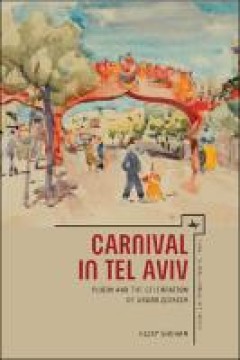
Carnival in Tel Aviv
The Tel Aviv annual Purim celebrations were the largest public events in British Palestine, and they played a key role in the development of the urban Jewish experience in the Promised Land. Carnival in Tel Aviv presents a historical-anthropological analysis of this mass public event and explores the ethnographic dimension of Zionism. This study sheds new light on the ideological world of urban…
- Edition
- -
- ISBN/ISSN
- 9781618113627
- Collation
- -
- Series Title
- -
- Call Number
- -

Charting Literary Urban Studies Texts as Models of and for the City
Guided by the multifaceted relations between city and text, Charting Literary Urban Studies: Texts as Models of and for the City attempts to chart the burgeoning field of literary urban studies by outlining how texts in varying degrees function as both representations of the city and as blueprints for its future development. The study addresses questions such as these: How do literary texts rep…
- Edition
- -
- ISBN/ISSN
- -
- Collation
- -
- Series Title
- -
- Call Number
- -
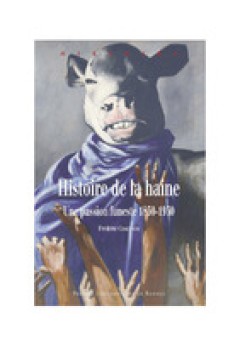
Histoire de la haine: Une passion funeste 1830-1930
La haine possède une histoire : ses expressions, ses modalités, ses logiques, ses objets et ses effets ne sont ni identiques ni immuables. Cet essai replace cette passion funeste dans son époque et cerne ses raisons évoquées par les contemporains. Si la haine est à sa manière une forme de rationalité permettant de se mouvoir dans l’univers social, elle est une « figure du pensable »…
- Edition
- -
- ISBN/ISSN
- 9782753559530
- Collation
- -
- Series Title
- -
- Call Number
- -
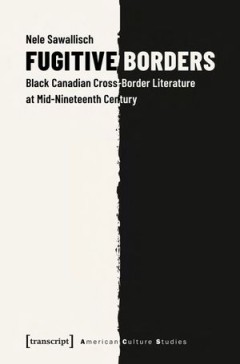
Fugitive Borders Black Canadian Cross-Border Literature at Mid-Nineteenth Ce…
Fugitive Borders explores a new archive of 19th-century autobiographical writing by black authors in North America. For that purpose, Nele Sawallisch examines four different texts written by formerly enslaved men in the 1850s that emerged in or around the historical region of Canada West (now known as Ontario) and that defy the genre conventions of the classic slave narrative. Instead, these te…
- Edition
- -
- ISBN/ISSN
- 9783839445020
- Collation
- -
- Series Title
- American Culture Studies
- Call Number
- -
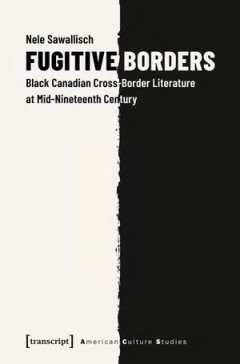
Fugitive Borders : Black Canadian Cross-Border Literature at Mid-Nineteenth C…
Fugitive Borders explores a new archive of 19th-century autobiographical writing by black authors in North America. For that purpose, Nele Sawallisch examines four different texts written by formerly enslaved men in the 1850s that emerged in or around the historical region of Canada West (now known as Ontario) and that defy the genre conventions of the classic slave narrative. Instead, these te…
- Edition
- -
- ISBN/ISSN
- 9783839445020
- Collation
- -
- Series Title
- -
- Call Number
- 800 SAW f
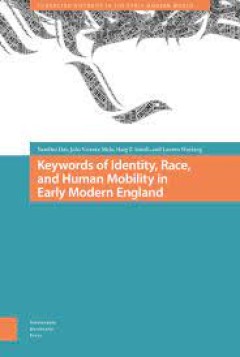
Keywords of Identity, Race, and Human Mobility in Early Modern England
What did it mean to be a stranger in sixteenth- and seventeenth-century England? How were other nations, cultures, and religions perceived? What happened when individuals moved between languages, countries, religions, and spaces? Keywords of Identity, Race, and Human Mobility analyses a selection of terms that were central to the conceptualisation of identity, race, migration, and transcultural…
- Edition
- -
- ISBN/ISSN
- 9789048552283
- Collation
- 358 halaman
- Series Title
- Connected Histories in the Early Modern World
- Call Number
- 305 DAS k
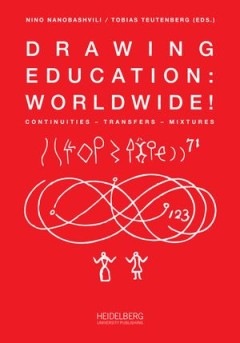
Drawing Education : Worldwide!
As a cultural technique, drawing was firmly anchored in the realities of European society from early modern to modern times. Based on this fact, the present volume asks for the first time about the significance of drawing and drawing education in other cultural areas. Indigenous methods of drawing and sign-learning in Arabic, Asian, Latin American, North American and European countries are addr…
- Edition
- -
- ISBN/ISSN
- 9783947732302
- Collation
- -
- Series Title
- -
- Call Number
- 370 DRA

Herbert Fröhlich A Physicist Ahead of His Time
This biography provides a stimulating and coherent blend of scientific and personal narratives describing the many achievements of the theoretical physicist Herbert Fröhlich. For more than half a century, Fröhlich was an internationally renowned and much respected figure who exerted a decisive influence, often as a ‘man ahead of his time’, in fields as diverse as meson theory and biology.…
- Edition
- -
- ISBN/ISSN
- 978-3-319-14850-2
- Collation
- XXI, 263
- Series Title
- -
- Call Number
- 189 HYL h
Iconographies of Occupation Visual Cultures in Wang Jingwei’s China, 1939�…
Iconographies of Occupation is the first book to address how the “collaborationist” Reorganized National Government (RNG) in Japanese-occupied China sought to visualize its leader, Wang Jingwei (1883–1944); the Chinese people; and China itself. It explores the ways in which this administration sought to present itself to the people over which it ruled at different points between 1939, whe…
- Edition
- -
- ISBN/ISSN
- 9780824887711
- Collation
- -
- Series Title
- -
- Call Number
- -
 Computer Science, Information & General Works
Computer Science, Information & General Works  Philosophy & Psychology
Philosophy & Psychology  Religion
Religion  Social Sciences
Social Sciences  Language
Language  Pure Science
Pure Science  Applied Sciences
Applied Sciences  Art & Recreation
Art & Recreation  Literature
Literature  History & Geography
History & Geography